Davos
Declaration
2018
The Davos Declaration marks the starting point of the ongoing Davos Baukultur Process. It continues the discourse of Baukultur with two pillars. The first pillar focuses on the scientific and content discourse. The concept of Baukultur and core terms of the Declaration are scientifically consolidated. The second pillar focuses on the strategic and political discourse through international conferences and debates on a political level and the implementation of culture-centred policies.
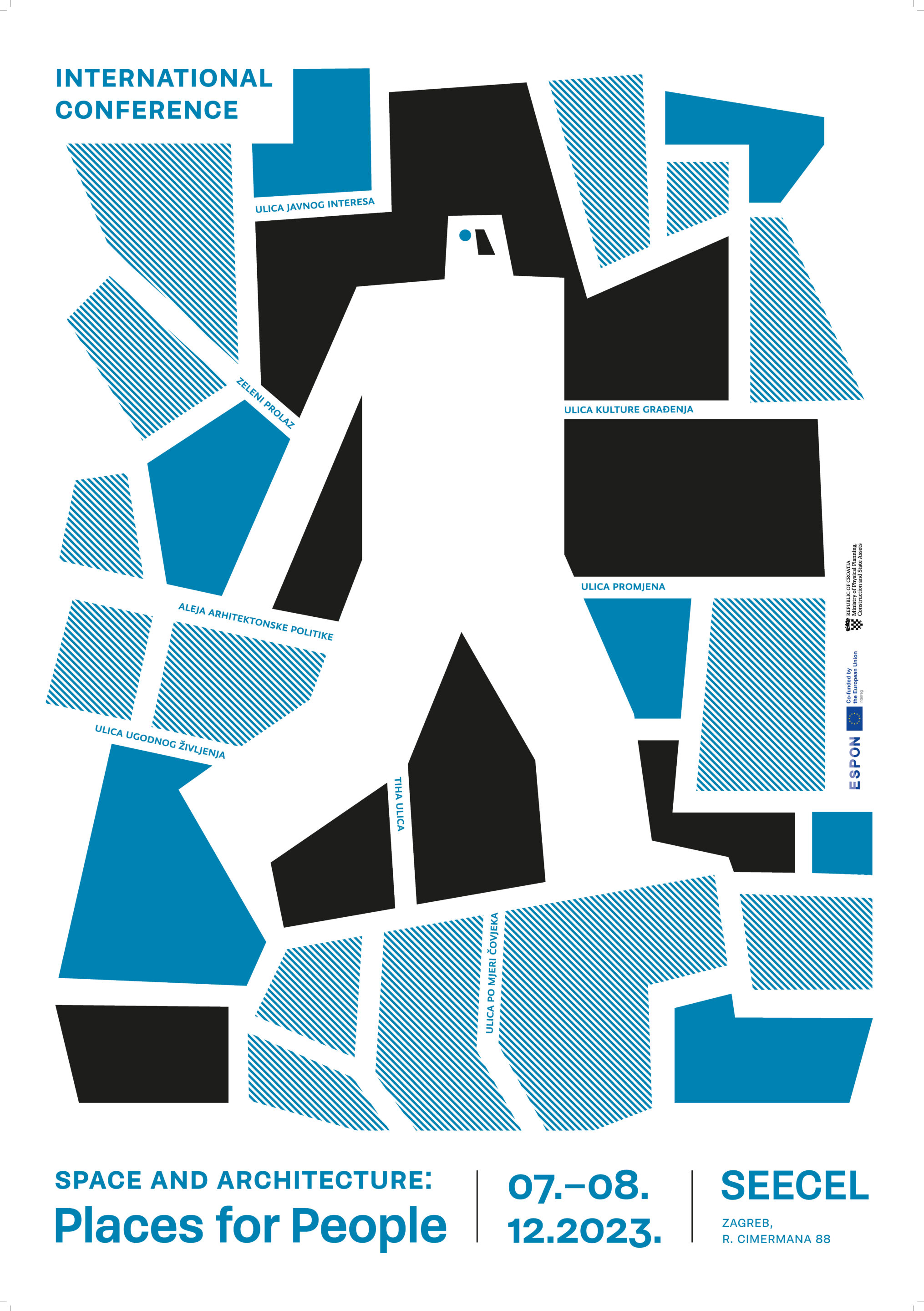
This two-day conference was organised by Croatia to identify challenges and to define priorities and measures that contribute to creating better spatial quality and improving quality of life. The occasion was the development of the second generation of Croatian architectural policy, the concept of which was presented during the conference.
The varied programme enabled discussions about the main current challenges and provided a platform for other European countries to share their experiences.
The Davos Baukultur process and Davos Baukultur Alliance were presented as part of the Swiss address.
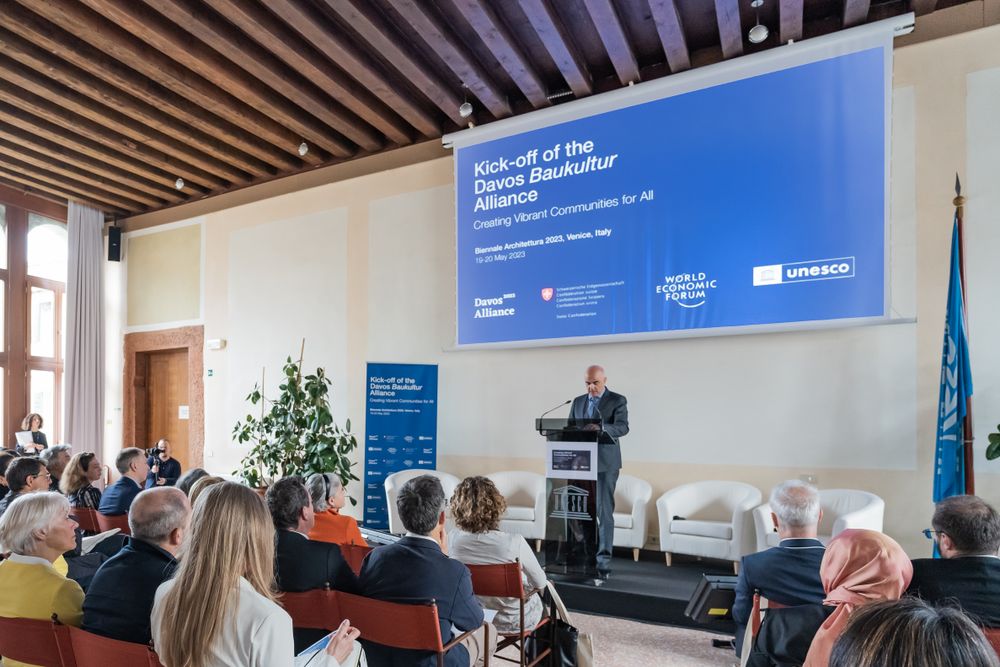
In the run-up to the Architecture Biennale in Venice, President Alain Berset opened the first public event of the Davos Baukultur Alliance under the title "Creating Vibrant Communities for All ‒ Spotlight on Affordability". In a showcase on Baukultur, Alejandro Aravena (ELEMENTAL), Christian Benimana (MASS Design Group) as well as Lyndon Neri and Rossana Hu (Neri&Hu Design) demonstrated by means of a particular project how high-quality Baukultur is being implemented across the globe. This was followed by a panel discussion among leading members of the Davos Baukultur Alliance. Together with the audience, they debated how governments, business and civil society can work together to advance a quality-oriented approach to planning, construction, and management of communities that embraces history and culture while also prioritizing affordability.
On the second day, members established year one priorities and agreed on activities and outcomes of the Davos Baukultur Alliance. The topics "Affordability and Social Value Creation", "Resilience and Climate Adaptation" as well as "Sustainability and Circularity" were discussed in depth by the Alliance members and examined for concrete, common fields of action.
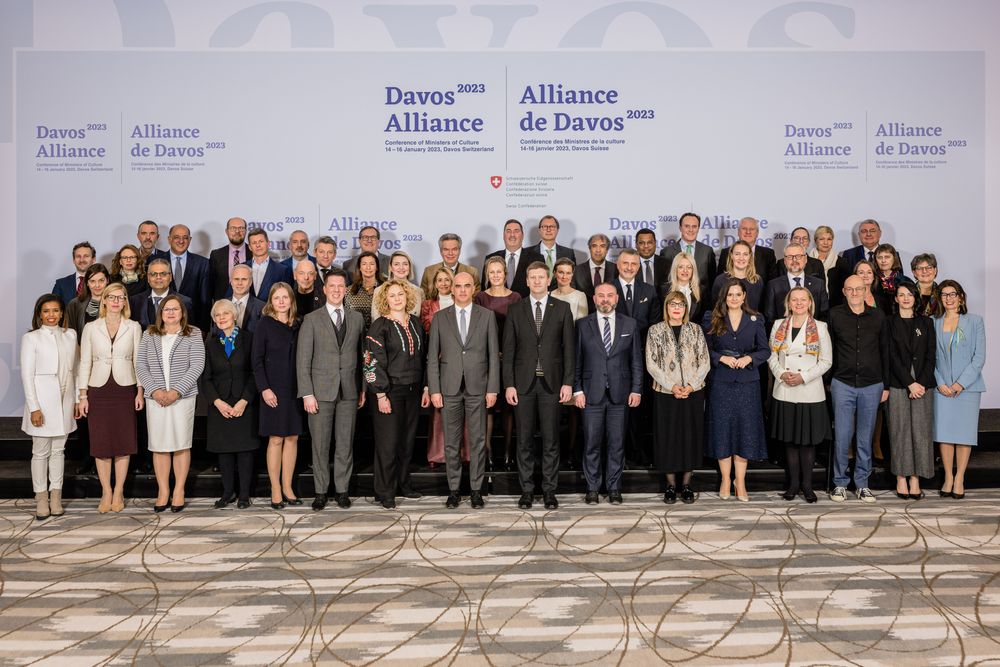
The second Conference of European Ministers of Culture under the title “Common Good – Shared Responsibility” took place at the invitation of the Federal Councillor Alain Berset. Ministers of culture from 31 European countries along with civil society organisations and major companies from the building and real estate industry have come together in Davos to launch the Davos Baukultur Alliance, a network for dialogue among all parties at the international level.
The Alliance is committed to the goals of the Davos Declaration and is based on the criteria of the Davos Baukultur Quality System. Switzerland will chair the Davos Baukultur Alliance for the first five years; its secretariat is based within the World Economic Forum.
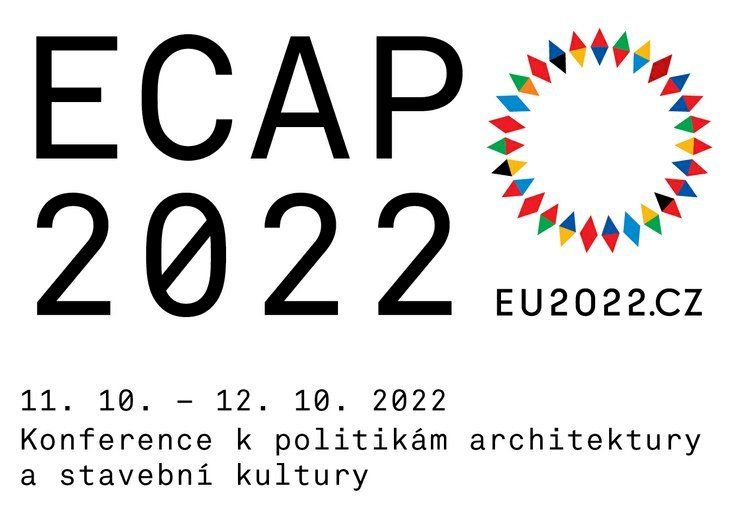
Over two days Baukultur experts discussed the quality of the built environment, sustainability and affordable living space, guidelines and instruments of different EU member states as well as the question of whether an International Building Exhibition (IBA) is possibly the right way to rebuild Ukrainian cities after the war. Before the conference, representatives of the ministries and of various European Baukultur initiatives met to swap notes. Switzerland presented the Davos Baukultur Alliance 2023 and the pending second conference of ministers of culture as the next milestones in the Davos Process. The event was organised under the auspices of the Czech EU presidency by the Ministry of Regional Development of the Czech Republic in cooperation with the Ministry of Culture, Czech Chamber of Architects and other partners.
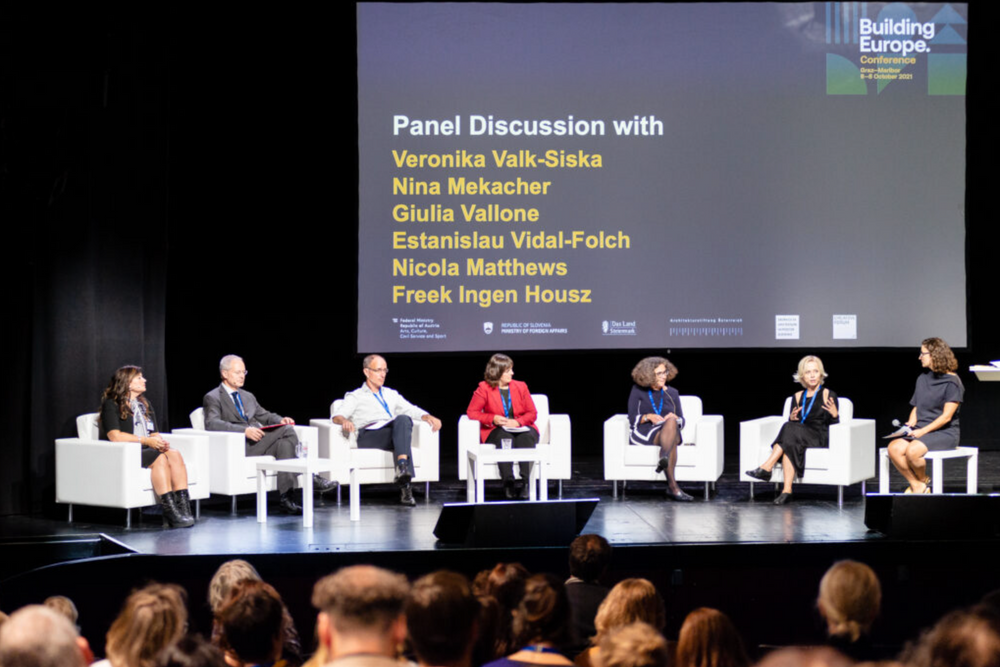
Austria and Slovenia organised this 3-days event on the current state and future of Architectural Policies and Baukultur in the European Union. Focus of the conference in Graz and Maribor were the results of the Open Method of Coordination (OMC) Working Group on high-quality Architecture and Built Environment for everyone. On behalf of the European Commission, this Working Group has drawn up recommendations for European policies on different levels of action.
During the conference, the “Davos Baukultur Quality system” was presented in detail. As an important tool to assess the quality of Baukultur, it is to be applied in future projects. Within the framework of the conference, these activities are connected with the initiative of the New European Bauhaus.
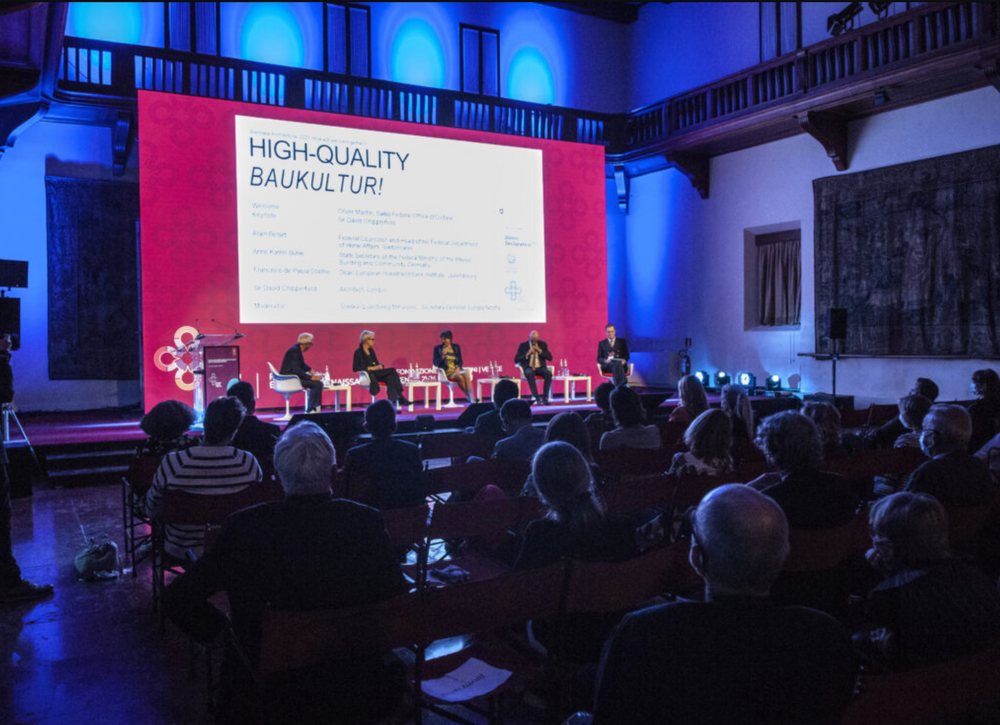
In the frame of the European Cultural Heritage Summit 2021, the Swiss Federal Office of Culture (FOC) in collaboration with Europa Nostra organized this event. In his key-note speech, Sir David Chipperfield highlighted: “The Davos Declaration creates the proposition that careful construction and consideration of how we develop and care for our built environment is one of the most effective ways by which we might start to tackle what otherwise seem to be issues beyond our control.”
Afterwards, Alain Berset, Swiss Federal Councillor for Home Affairs, invited his guests on stage: Anne Katrin Bohle, German State Secretary at the Federal Ministry of the Interior, Building and Community, Francisco de Paula Coelho, Dean of the European Investment Bank Institute, Sir David Chipperfield and Oliver Martin, Swiss Federal Office of Culture. Sneška Quaedvlieg-Mihailovic, Secretary General of Europa Nostra, led the debate on high-quality Baukultur.
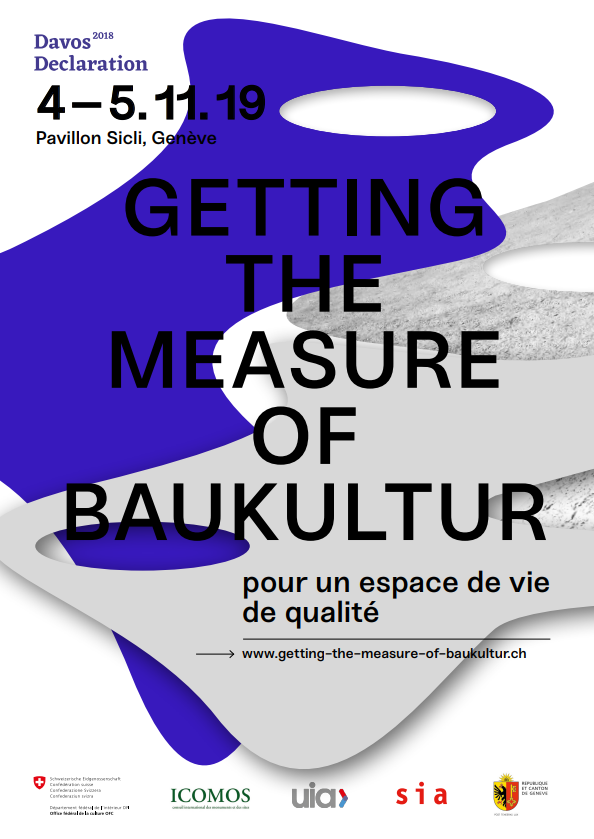
In January 2018 the European Ministers of Culture adopted the Davos Declaration calling for a high-quality Baukultur to improve the wellbeing of all. To understand how we can improve the built environment, the Swiss Federal Office of Culture (FOC), the International Council on Monuments and Sites (ICOMOS), the International Union of Architects (UIA), the Swiss Society of Engineers and Architects (SIA) and the Department of Territorial Development (DT) of the Canton of Geneva organised a conference entitled “Getting the measure of Baukultur”. The conference addressed questions such as these: What is our exact definition of high-quality Baukultur? How can it be achieved? How can Baukultur be assessed?
#culturedubati19
#baukultur19
Welcome addresses
Isabelle Chassot, Director of the Federal Office of Culture, Bern (SUI)
Antonio Hodgers, President of the State Council, Geneva (SUI)
Introduction
Oliver Martin, Head of the Cultural Heritage and Historical Monuments section, Federal Office of Culture, Bern (SUI)
Keynote session 1: What is quality?
Technical norms define quality through the fulfilment of objectively measurable requirements and criteria. Defining the quality of Baukultur, however, is much more complex. It requires conscious decisions based on cultural values and a broad expert and public debate. This session explores methods and tools to comprehend quality in terms of Baukultur.
How to define quality
Chris Younès, Psychosociologist and Philosopher, Professor at the École Spéciale d’Architecture, Paris (FRA)
Why do people aspire to quality?
Gabriele Oettingen, Professor of Psychology at New York University (USA)
What is high-quality Baukultur?
Panel with Chris Younès, Gabriele Oettingen, Julien Cainne (Head of the Department of Urban Planning, Mobility and Sustainable Development of the City of Vevey, SUI) and Stefan Cadosch (President of the Swiss Society of Engineers and Architects, Zurich, SUI)
Pavillon Sicli
Barbara Tirone, Vice-president of the Association Pavillon Sicli and of the House of Architecture, Geneva (SUI)
The quality of Baukultur is evaluated and assessed every day. These evaluations and assessments are usually based on value judgments. What are the possibilities and risks of integrating quantity-based measurement methods?
The impudence of quantification
Steffen Mau, Professor of Macrosociology at Humboldt University of Berlin (GER)
Places to love
Colin Ellard, Associate Professor of Cognitive Neuroscience at the University of Waterloo (CAN)
Can the quality of Baukultur be quantified?
Panel with Colin Ellard, Paul McConnell (Head of Digital Studio at Arup, London, GBR) and Georg Pendl (President of the Architects’ Council of Europe, Brussels, BEL)
Understanding the human experience to improve urban places
Sandro Cattacin, Professor of Sociology at the University of Geneva (SUI)
Smartphone technologies for more resilient communities
Neil Davidson, Landscape Architect and partner at J & L Gibbons, London (GBR)
People, spaces, buildings, places – creating a lifecycle approach
Lynne Ceeney, Chair of the DQI Initiative for the UK Construction Industry Council, London (GBR)
Discussion
Moderation by Ariane Widmer Pham, Swiss Society of Engineers and Architects, Zurich (SUI)
Making the workplace feel human
Sevil Peach, Interior Designer, London (GBR)
‘Open’ workspace and human collaboration
Stephen Turban, co-author of “The impact of the ‘open’ workspace on human collaboration”, Cambridge (USA)
Price impacts of quality architecture
Ilir Nase, Assistant Professor of Management in the Built Environment at Delft University of Technology (NLD)
Discussion
Moderation by Lorenz Bräker, Vice-president of the International Union of Architects, Paris (FRA)
Different fields of expertise have established their own quality management systems. What can we learn from them? What are the prospects and limitations of quality management in the area of Baukultur? This session explores methods and tools to comprehend quality in terms of Baukultur.
Urban design governance and place value
Matthew Carmona, Professor of Planning and Urban Design at University College London (GBR)
Urban data for improved everyday life
Alanus von Radecki, Head of the Urban Governance Innovation Team at Fraunhofer Institute, Stuttgart (GER)
Measuring human development
Jon Hall, United Nations Development Programme, New York (USA)
Towards an African model of sustainable construction
Kelly Doran, Senior Principal at MASS Design Group, Kigali (RWA)
Discussion
Moderation by Francesco della Casa, cantonal architect, Geneva (SUI)
Diversity and inclusion in urban societies
Wolfgang Kaschuba, Ethnologist and Cultural Scientist, Professor emeritus at Humboldt University of Berlin (GER)
Regeneration of historic urban centres
Claudine Houbart, Architecture and Conservation Historian at the University of Liège (BEL)
Shaping future identities by digital fabrication
Matthias Kohler, Professor of Architecture and Digital Fabrication at ETH Zurich (SUI)
Discussion
Moderation by Trevor Marchand, ICOMOS, Paris (FRA)
Baukultur’s challenges: encouraging fragile connections future
Felicitas Hillmann, Head of the Research Unit “Regeneration of cities” at the Leibniz Institute for Research on Society and Space, Erkner (GER) and Professor of “Urban Transformation in International Perspective” at the Technical University Berlin
Conclusions
Bénédicte Selfslagh, Davos Declaration editorial team, London (GBR)
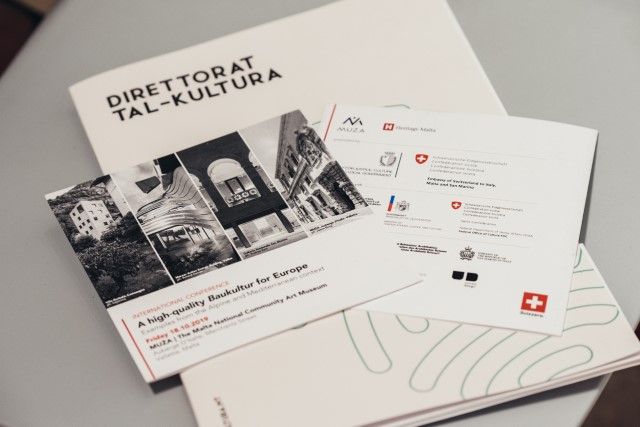
In October 2019, the “Ministry for Justice, Culture and Local Government” in Malta and the Swiss embassy in Italy, Malta and San Marino organised the international conference “A high-quality Baukultur for Europe. Examples from the Alpine and Mediterranean context” in Malta in cooperation with the Swiss Federal Office of Culture, the “Ministry of Education, Culture and University of the Republic of San Marino” and the Ministry for Foreign Affairs, Justice and Culture Liechtenstein. The discussion focused on ways of implementing high-quality Baukultur in Malta, San Marino, Liechtenstein and Switzerland plus the associated challenges.
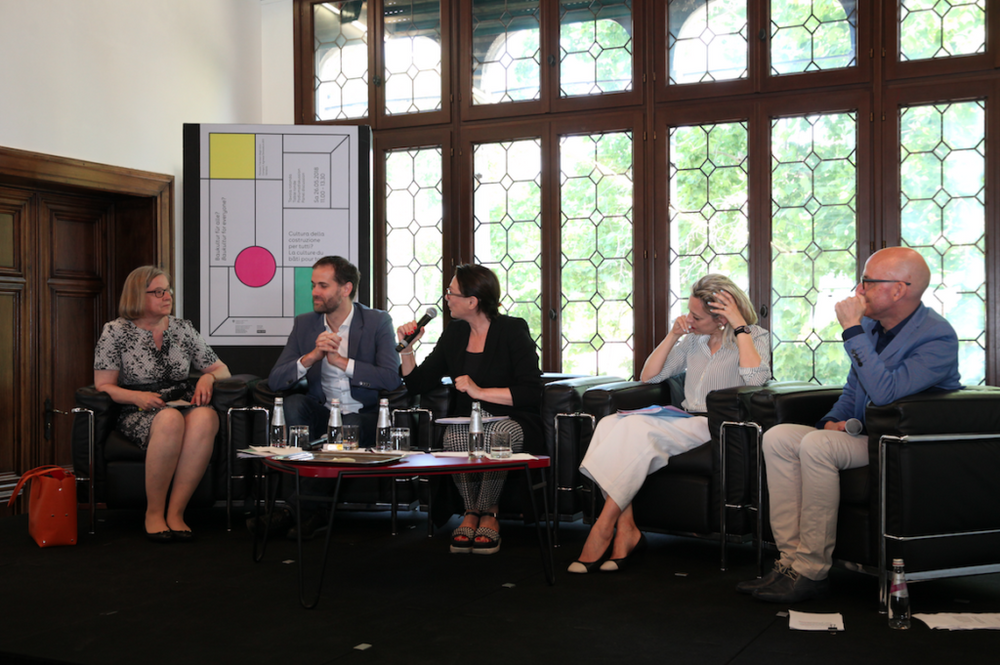
Using the “single-family home” as an example, a panel discussion organised by the Federal Office of Culture to mark the opening of the 2018 Venice Biennale of Architecture will explore the idea of ensuring a better quality of life for everyone by developing high-quality Baukultur solutions.
Alain Berset, President of the Swiss Confederation
Antonio Hodgers, Counselor of State, Canton of Geneva
Felix Keller, University St. Gallen
Ludovica Molo, President of the Federation of architects Switzerland
Christine Vollmer, Chief Editor, Das Einfamilienhaus
Romaine Jean, Journalist and television producer (chair)
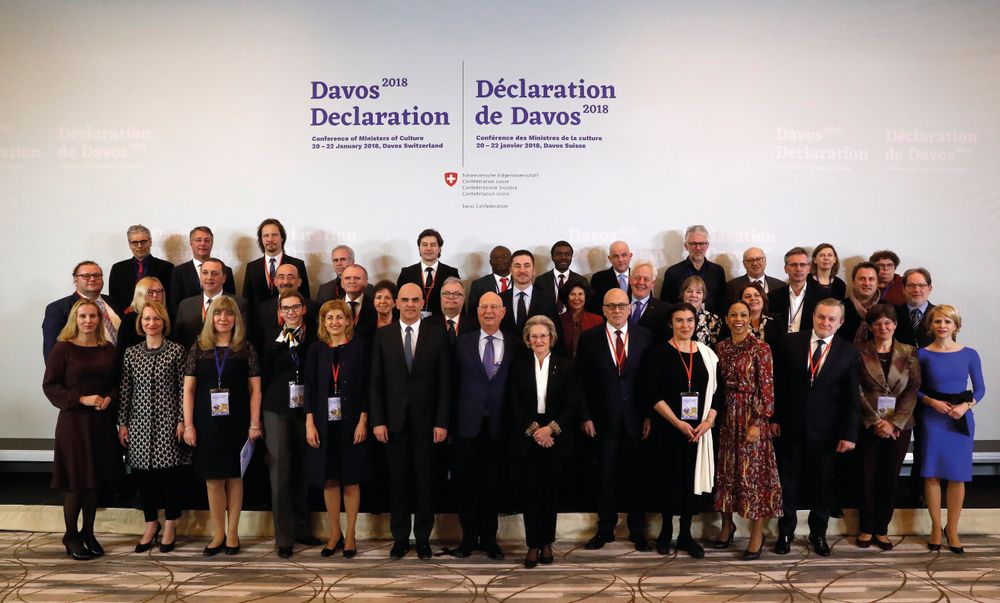 Conference of Ministries of Culture Davos 2018
Conference of Ministries of Culture Davos 2018
Europe’s Ministers of Culture accepted the invitation of President of the Swiss Confederation Alain Berset to meet in January 2018 in the run-up to the World Economic Forum (WEF) in Davos. They approved the Davos Declaration “Towards a high-quality Baukultur for Europe”, which shows possibilities for embedding high-quality Baukultur in Europe on a political and strategic level.